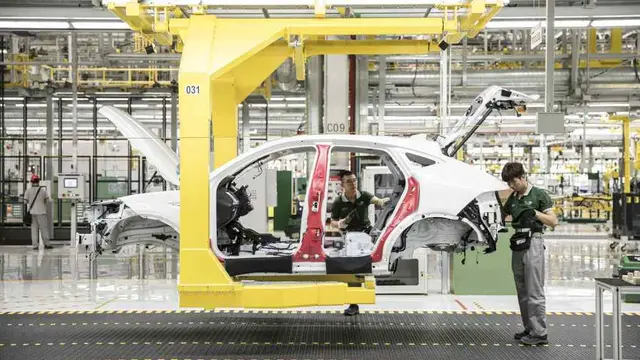China's industrial sector is picking up growth in the first quarter. The country'sMinistry of Industry and Information Technology (MIIT)said the number has exceeded expectations.
Industrial added value for enterprises with annual revenue above 20 million yuan increased by 6.5 percent compared with the same period last year.
The performance of the private sector outnumbered the industry in general, with an industrial added value growth of 10.6 percent. China has been rolling out favorable policies, including tax cuts and lowering the required reserve ratio (RRR), to stimulate growth.
Meanwhile, the industry in China is pushing to upgrade its tech level. Government data shows enterprises in the country are investing 16.9 percent more into technology upgrades.
Manufacturing Purchase Manager's Index (PMI), rose back above the threshold to 50.5 after dropping below 50 for three months, indicating the sector is expecting growth.
However, the weak automobile market in 2018 continued to this year. A draft of a new regulation released last week by the government shows China is considering relaxing policies that curtail car sales in some of the congested cities. Currently, cities like Beijing or Shanghai are utilizing a lottery system or auction to rations out license plate to control the number of cars on the street.
The draft appears to forbid cities to enact new regulations that might curtail car sales, and urge cities that implement such policies to lift the restriction on families without a car. The draft pushes automobile stocks last week when it was released.
On the other hand, some analysts say the slowdown of sales might mean a change in demand. Sales of new energy vehicles in Q1 doubled compared with the same time last year. Sales of new energy cars increased by 109.7 percent year-on-year. The MIIT expects production of new energy vehicles this year to exceed 1.5 million. The country will also push to promote the use of new energy cars.
We will accelerate the construction of charging stations for new energy cars, and optimize their distribution, said Huang Libin,spokesmanof the MIIT.
(CGTN)
 简体中文
简体中文

